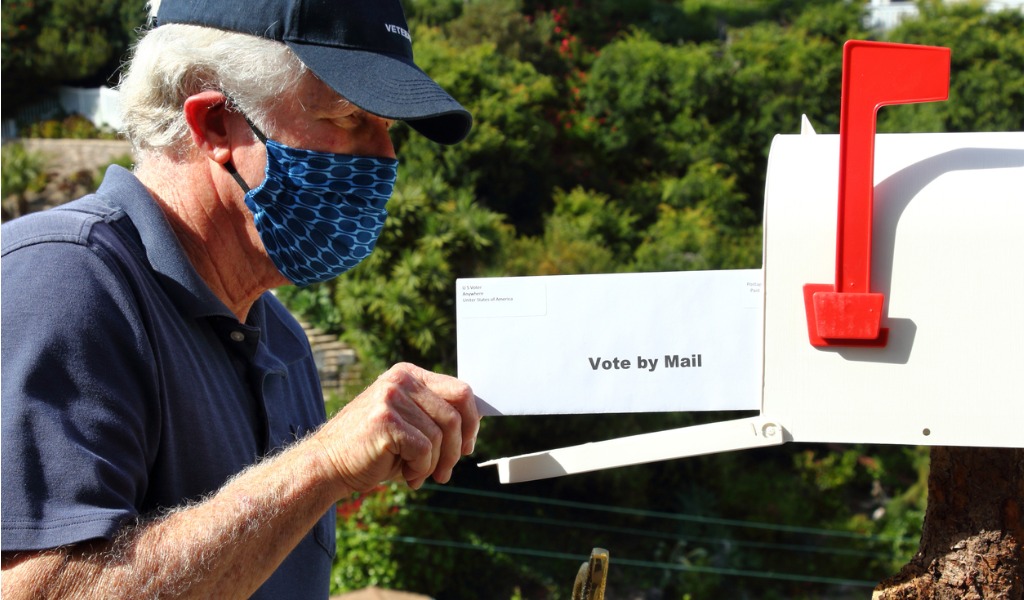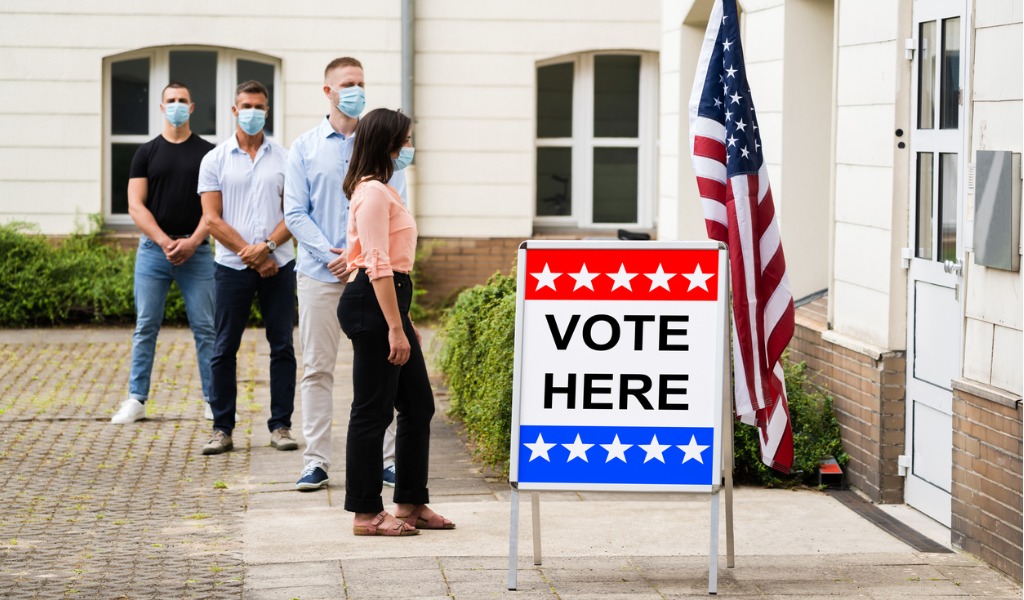
Voting in the era of COVID-19
Editor’s note: CHN Intern Jaxzia Perez is a junior at Mt. Holyoke College, majoring in Politics and Latino/a/x Studies.
In March, when the United States shut down due to coronavirus, the upcoming election was pushed to the back burner in the minds of many as people struggled to be financially secure and stop the spread of the virus. Many months later, individuals are still grappling with the lack of federal resources, students have begun virtual learning, large social gatherings are still being avoided, and masks have become the new normal everywhere.
As the Nov. 3 election approaches in the unexpected midst of COVID-19, we need to ask: will voting at the polls be safe?
Although unsure of what the country will look like in November, election officials are getting creative by expanding online voter registration and ballot requests, installing new machines at polling locations and using outdoor venues to combat COVID-19. Despite these attempts for safe and fast voting, there are various issues voters might face on election day.

Due to the number of mail-in and absentee ballot requests across the country, the United States Postal Service (USPS) has warned more than 46 states that their residents may not receive their mail-in ballots in time, because these states’ deadlines do not leave enough time for delivery. USPS also let election officials know that ballots may not return to the election offices within the appropriate time to be counted because there is not enough time for return through the mail.
The letters sent to election offices from USPS could push more people to vote in person, early or on election day. The unreliability of the Postal Service and possibility of infection at the polling place could force citizens to make a difficult decision. Late last week, a U.S. District Judge for the Eastern District of Washington issued an order stopping the USPS from implementing a series of measures that critics said had slowed down mail service nationwide. The judge cited the threat the slow-down poses for the Nov. 3 election.
In many districts, polling locations continue to close as the number of voters casting their ballot in person increases. This can make it difficult for people to remain socially distant and leads to extremely long lines, with a five- to six- hour wait in some locations during the primaries. Especially in low-income communities of color, people may feel discouraged by the wait or unable to wait that long if they still have to work on election day.
Polling places may also lack the proper sanitation and have a high risk of contamination between voters because of the shortage in poll workers. The drastic decline in available poll workers due to the virus means those remaining may not be able to take proper safety precautions.

Is it safe to vote in person?
There are also issues that some election officers have yet to even address such as: what about voters who do not have a face mask? Will they be provided? What about people who were recently diagnosed with COVID-19 but it’s too late for them to request a mail-in ballot? Or for individuals who are still in their quarantine period from travel?
In addition, unrelated to coronavirus, another complication on voters’ mind is election security. Foreign influence is a risk in this upcoming election, especially with the Federal Bureau of Investigation’s Director confirming Russia’s efforts to intervene.
So, what can voters do to protect themselves?
The Centers for Disease Control and Prevention (CDC) recommends washing your hands, covering coughs and sneezes, and considering voting alternatives to minimize contact. The CDC does not recommend wiping down voting equipment yourself, due to machine sensitivity, and does recommend avoiding crowds as much as possible. Be prepared if you are voting at a polling place by bringing hand sanitizer and wearing a face mask.
Since adapting polling places and secure treatment of mailed ballots cost money, it would have helped if the Senate had taken action on the $3.6 billion in funding for this purpose included in the House-passed HEROES Act, a comprehensive COVID relief bill. Election officials are still trying to implement COVID-19 safety procedures, but vigilant oversight will be necessary to ensure conditions to allow all citizens to excise their right to vote – and to do so safely.

